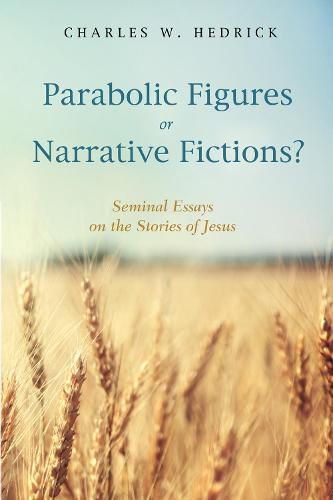Readings Newsletter
Become a Readings Member to make your shopping experience even easier.
Sign in or sign up for free!
You’re not far away from qualifying for FREE standard shipping within Australia
You’ve qualified for FREE standard shipping within Australia
The cart is loading…






This title is printed to order. This book may have been self-published. If so, we cannot guarantee the quality of the content. In the main most books will have gone through the editing process however some may not. We therefore suggest that you be aware of this before ordering this book. If in doubt check either the author or publisher’s details as we are unable to accept any returns unless they are faulty. Please contact us if you have any questions.
Hedrick contends that parables do not teach moral and religious lessons; they are not, in whole or part, theological figures for the church. Rather, parables are realistic narrative fictions that like all effective fiction literature are designed to draw readers into story worlds where they make discoveries about themselves by finding their ideas challenged and subverted–or affirmed. The parables have endings but not final resolutions, because the endings raise new complications for careful readers, which require further resolution. The narrative contexts and interpretations supplied by the evangelists constitute an attempt by the early church to bring the secular narratives of Jesus under the control of the church’s later religious perspectives. Each narrative represents a fragment of Jesus’s secular vision of reality. Finding himself outside the mainstream of parables scholarship, both ecclesiastical and critical, Hedrick explored a literary approach to the parables in a series of essays that, among other things, set out the basic rationale for a literary approach to the parables of Jesus. These early essays form the central section of the book. They are published here in edited form along with unpublished critiques of a thoroughgoing literary approach and his response.
$9.00 standard shipping within Australia
FREE standard shipping within Australia for orders over $100.00
Express & International shipping calculated at checkout
This title is printed to order. This book may have been self-published. If so, we cannot guarantee the quality of the content. In the main most books will have gone through the editing process however some may not. We therefore suggest that you be aware of this before ordering this book. If in doubt check either the author or publisher’s details as we are unable to accept any returns unless they are faulty. Please contact us if you have any questions.
Hedrick contends that parables do not teach moral and religious lessons; they are not, in whole or part, theological figures for the church. Rather, parables are realistic narrative fictions that like all effective fiction literature are designed to draw readers into story worlds where they make discoveries about themselves by finding their ideas challenged and subverted–or affirmed. The parables have endings but not final resolutions, because the endings raise new complications for careful readers, which require further resolution. The narrative contexts and interpretations supplied by the evangelists constitute an attempt by the early church to bring the secular narratives of Jesus under the control of the church’s later religious perspectives. Each narrative represents a fragment of Jesus’s secular vision of reality. Finding himself outside the mainstream of parables scholarship, both ecclesiastical and critical, Hedrick explored a literary approach to the parables in a series of essays that, among other things, set out the basic rationale for a literary approach to the parables of Jesus. These early essays form the central section of the book. They are published here in edited form along with unpublished critiques of a thoroughgoing literary approach and his response.